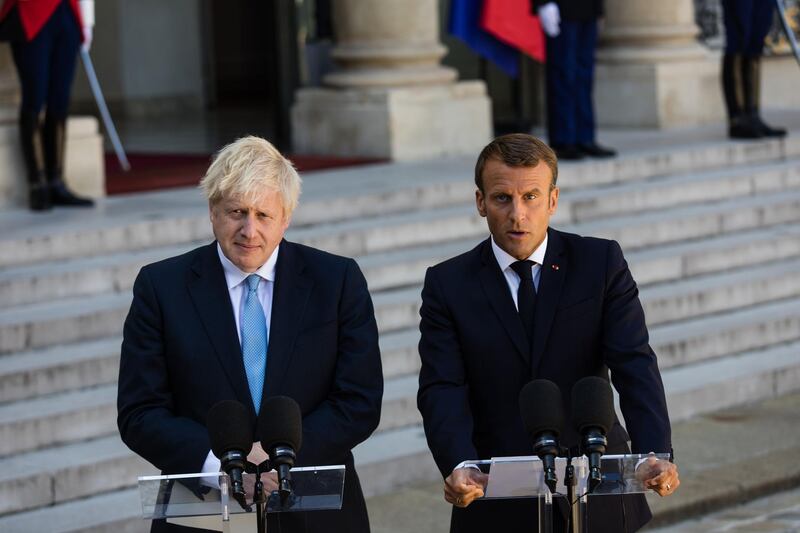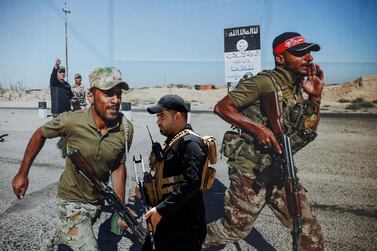Britain under prime minister Boris Johnson continues to back the 2015 Iran nuclear deal, despite being under increasing pressure from the US to abandon it, a British diplomatic source said on Friday.
Speaking to AFP one day ahead of the G7 summit, a British official, who asked not to be named said: "We are strong supporters" of the nuclear deal. I don't think you will find any change in the British government position."
Mr Johnson will hold talks in G7 in Biarritz with US president Donald Trump, who pulled out of the nuclear accord last year.
Tehran’s nuclear ambitions and how best to de-escalate the tensions in the region are expected to be discussed in depth at the summit, which takes place at the resort in southern France over the weekend.
Although British-American relations appeared to have strengthened under Mr Johnson’s leadership, the official said the nuclear deal, which the UK helped negotiate, is important to ensure that Iran never obtains a nuclear weapon.
"It is important that it (the deal) continues," the official said.
"I think on this issue there is a sort of expectation that we are going to have a meeting with the American president and our position will change. But our position on Iran is well known."
London's stance on Tehran toughened after the Islamic Revolutionary Guard Corps seized the Stena Impero, a British-flagged tanker with a crew of 23 on July 19.
Iran claimed the move was in retaliation to the British navy seizing their oil tanker the Grace 1, now renamed the Adrian Darya 1, off the coast of Gibraltar. The boat was seized for carrying 2 million barrels of crude oil, reportedly to Syria, which would have breached EU sanctions. But the vessel was released earlier this week and reports suggest the Stena Impero tanker will be released in the coming days.
Tehran has further angered Western powers by publicly declaring that it had breached the uranium limits agreed in the 2015 accord on July 1.
Ahead of the G7 meeting, France has also been looking to align its views on Iran with Britain's. A French official told Reuters that the so-called "E3" major European powers of France, Britain and Germany needed to stay united on Iran.
"It's important to keep the E3 together on Iran," said the French official.
If the US president has other ideas "we are very happy to talk about them", the official said, adding that for now the nuclear deal was the "best way" of preventing Iran from obtaining a nuclear weapon.
French president Emmanuel Macron, who will chair the three-day summit, was on Friday due to meet Iranian foreign minister Mohammad Javad Zarif in Paris.
Mr Macron admitted in comments he made on Wednesday that there were "true disagreements" within the G7 over Iran but said he would "try to propose things" in the talks with Mr Zarif.
On Thursday, Mr Johnson held talks with French president where the pair mainly discussed Brexit.







